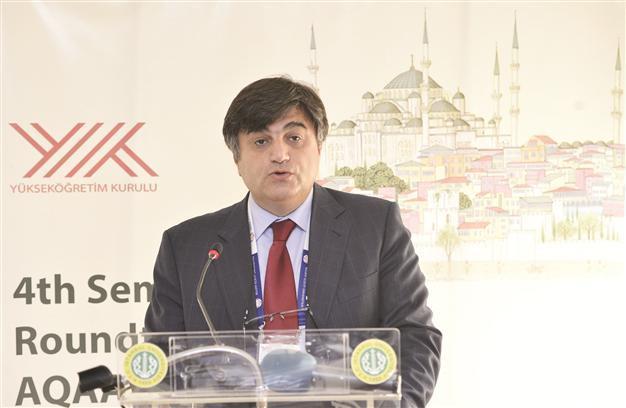Turkey’s higher education board head admits academic failure
Gamze Kolcu ANKARA

A turkey voting for Christmas? YÖK head Gökhan Çetinsaya has recommended the abolition of the higher education board.
Turkey is failing to train its academics, according to the head of Turkey’s Higher Education Board (YÖK), who admitted that the body he heads has a "bad image" and even suggested it should be abolished.“We have two significant problems in higher education. One is that we cannot train qualified academics,” YÖK President Gökhan Çetinsaya told daily Hürriyet in a recent interview, adding that Turkey must take advantage of its "demographic opportunity" in the next few decades by focusing on high-quality education.
“The education rate has increased from 20 percent to 80 percent in a decade. We are ranked sixth among the countries in terms of increasing its student population. We have to transform this success into high-quality [education]. Our demographic opportunity will continue until 2050. More than 1.2 million youths will graduate from high school and demand higher education every year up to 2050,” Çetinsaya said.
He also suggested that smaller classes were key to increasing the quality of higher education.
“One academic teaches an average of 21 students in Turkey, while the OECD average is 16. The rate increases to 51 in Turkey’s state universities,” he said.
“Around 4,200 people graduate with a PhD in Turkey every year, and we have to increase this number,” Çetinsaya added.
He also defended previous statements in which he said his institution should be abolished.
“YÖK has a serious image problem. All segments of the public agree with that. Apart from the negative memories about it in the past, the current system is too tight for our university system,” he said, also adding that it is not right to force different types of universities to comply with the same uniform set of rules.
“We need to form incentives for the new universities while also taking measures that will increase the success of the deep-rooted universities,” he said.
Çetinsaya argued that a new system is needed and explained that it should have new planning, coordination and quality control systems. “These duties might be done by one or more institution, or a ministry might oversee them. Otherwise public money will be wasted,” he said.
He also pointed to individual employment rights of academics and low salaries in universities as two major problems that need solutions.
“Ethical problems, mobbing, and academic freedom are other serious problems. We have to solve these problems as academics,” Çetinsaya said, stressing that mere legal amendments or regulations would not be sufficient to solve such problems.
















